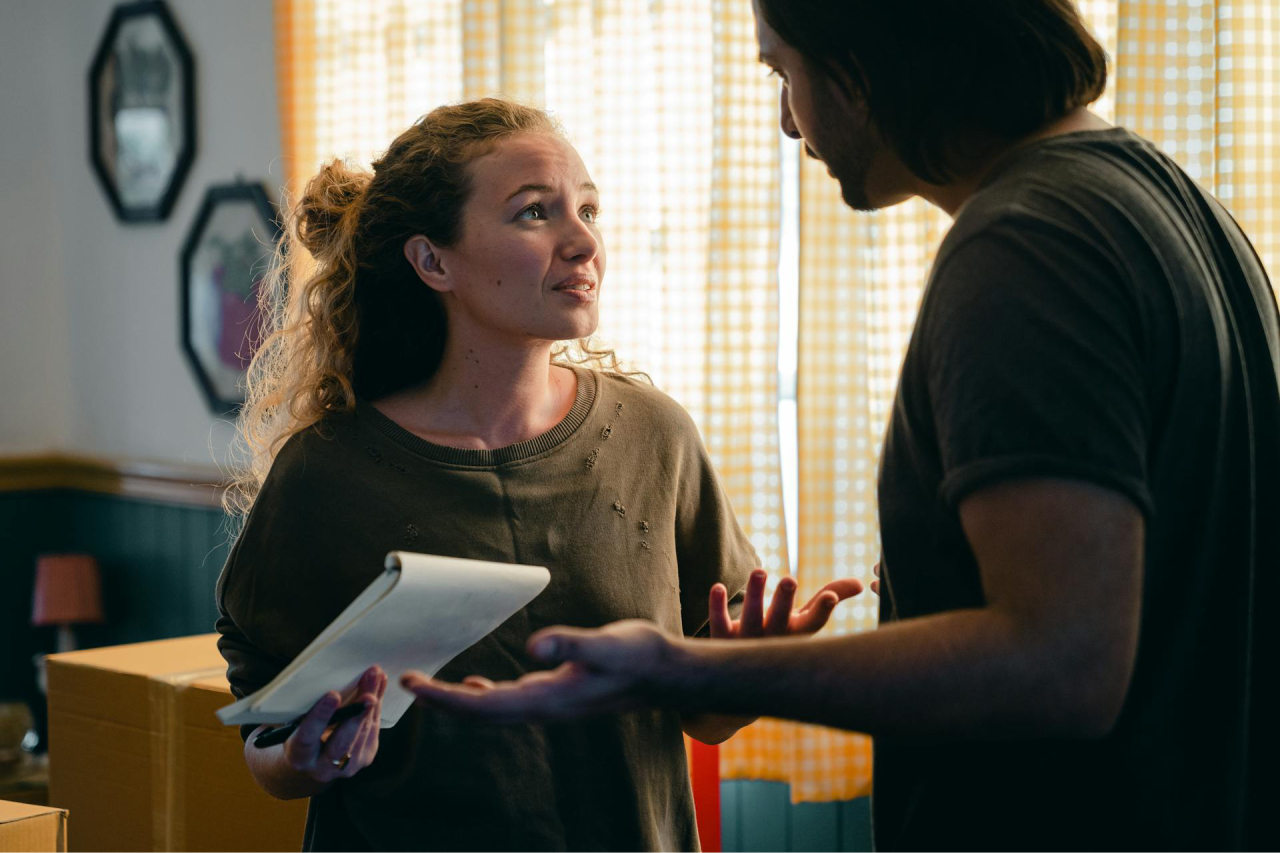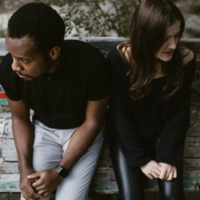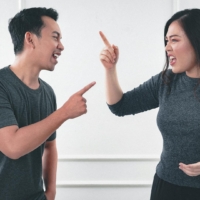What is Relationship Anxiety?
Romantic relationships, especially early on can cause the feeling of butterflies in the stomach, sweaty palms, and a pounding heart. This is good stress. It’s a positive physical reaction. However, some people experience a physical response not dissimilar, but rooted in negativity and fear.
Relationship anxiety is when a person experiences persistent doubt, fear, or worry in a relationship even when things appear to be going well. It’s not an official diagnosis and there is little research on the subject. Regardless, relationship anxiety is a real and common phenomenon.
It usually occurs at the beginning of a relationship when a person is feeling more insecure since they don’t fully know the other person’s level of commitment. It can pass or come back intermittently. A person with relationship anxiety can experience emotional distress, fatigue, and other common symptoms of anxiety.
Causes of Relationship Anxiety
Attachment style is the biggest contributor to relationship anxiety. The way that our childhood experiences with our parents (or other caregivers) emerge are categorized into four different forms, known as attachment styles. A person’s attachment style refers to the way they relate to other people. Formed early on, they stick with us well into adulthood, affecting all our adult relationships, especially romantic ones.
As children, we seek comfort and support from our caregivers. If both our physical and emotional needs are met, we become what’s known as ‘securely attached’. If on the other hand, our caregivers do not satisfy these needs, we develop ‘insecure attachment’.
Anxious attachment style is also known as preoccupied attachment, which means the person is preoccupied with how they are perceived, and they are constantly overanalyzing the relationship.
A partner with an anxious attachment style is always scanning their partner’s behavior and interactions, looking for signs that they may not love them anymore. They may think their partner will abandon them at any point. Therefore, they can never relax or feel comfortable in the relationship.
Other Causes of Relationship Anxiety Include:
- General anxiety that manifests as worry about relationships
- Relationship OCD can cause an individual to obsessively question their relationship
- Emotional neglect or abuse, causing low self-esteem or low self-worth due to past trauma
Symptoms of Relationship Anxiety
Every person in a relationship will have doubts from time to time. It’s important to understand the fine line between healthy concern and excessive worry.
The Three Most Common Symptoms Of Relationship Anxiety Are:
- Excessive Reassurance-Seeking – This refers to the refers to the tendency to repeatedly request assurance about one’s self-worth, often to the point of exasperating others.
- Self-Silencing – People who self-silence may not express their tastes, opinions, or feelings to their partner — especially when these thoughts are different from those of their partner
- Partner Accommodation – Partner accommodation, also known as enabling. refers to ways that partners of individuals with anxiety modify their behaviors in order to make their partner feel better.
Other Signs And Symptoms of Relationship Anxiety May Include:
- Constant Worry – Feeling anxious or worried about the status of the relationship, future outcomes, or potential conflicts.
- Insecurity – Feeling insecure about oneself, their partner’s feelings, or the overall strength of the relationship.
- Fear of Abandonment – Experiencing intense fear of being abandoned or rejected by their partner, leading to clingy or controlling behaviors.
- Overanalyzing – Overthinking and analyzing interactions, messages, or events in the relationship, often leading to misinterpretations and misunderstandings.
- Difficulty Trusting – Struggling to trust the partner, leading to suspicions, jealousy, and difficulty in building a sense of security.
- Avoidance Behavior – Avoiding confrontations, intimacy, or difficult conversations, to cope with anxiety and uncertainty.
Physical Symptoms
In addition to the emotional symptoms, someone with relationship anxiety may experience physical symptoms. When thinking about the relationship the person may experience:
- A racing heart
- Sweating
- Trembling
- Stomach issues
Effects of Relationship Anxiety
Relationship anxiety negatively affects both people.
Depression
Long-existing relationship anxiety can easily turn into depression if it’s not addressed.
Increased Anxiety
Relationship anxiety can cause an uptick in the person’s overall anxiety, both in frequency and intensity.
Conflict
Relationship anxiety is a feeling of mistrust. Although it’s much more about that person’s insecurities than it is about their partner, conflict is likely. The partner may feel offended and frustrated by the lack of confidence in the relationship.
Controlling Behavior
Control is an unhealthy way the individual with relationship anxiety may try to manage it. However, controlling behavior will only create more distance in the relationship. Ultimately, such behavior can cause the partner to leave.
Self-fulfilling Prophecy
All of the symptoms of relationship anxiety might result in a self-fulfilling prophecy where the person is left alone in the end. Without realizing it, thoughts can become our actions, and our actions become our realities.
Treatment for Relationship Anxiety
Couples therapy can help you find ways to form a better connection with both people’s needs being met. Different types of couples therapy for relationship anxiety include:
- Behavioral Couples Therapy
- Cognitive Behavioral Conjoint Therapy
- Cognitive Existential Couples Therapy
- Psychodynamic Psychotherapy
Since relationship anxiety shares similar symptoms with other anxiety disorders, some professionals may suggest working only with the partner with anxiety.
Self-Help Strategies
Commit To Self-Discovery
Put in the effort to understand yourself better. Identify what your triggers are. Think about when your anxiety comes on. Study the patterns to help you manage your anxiety. Try journaling.
Maintain Your Identity
It’s possible to lose sight of who we are as individuals when in a relationship. Maintain independence. Take time for your hobbies and interests and foster relationships with friends and family.
Express Yourself
Communication can make all the difference. Be honest. Let your partner know how you’re feeling. Opening up the lines of communication is what builds trust, which will help ease relationship anxiety.
Be Kind To Yourself
People with relationship anxiety can be overly critical of themselves and carry a lot of shame. The voice inside your head might be saying, “You’re unlovable”, but you can challenge that voice. Replace your negative self-talk with positive self-affirmations like, “I am worthy of love”.
Meet With A Therapist
Your relationship anxiety started a long time ago. A professional can help you address childhood trauma, and remove any shame you may be feeling. You’ll gain coping skills and tools to help you maintain healthy relationships.
How to Help Your Partner with Relationship Anxiety
- Know Your Partner Wants To Feel Love – They always want to be closer to you and receive love and affection from you. This is the root of it all. You may think that they should already know you love them. However, an anxious partner needs you to confirm this on a regular basis. Acknowledge them with your words. Words of affection are powerful. Don’t forget the “I love you’s.” Tell them how grateful you are to be with them, and remind your partner of all their positive qualities.
- Show Genuine Interest – Ask them about what they feel and what they need. Engage in meaningful communication with your partner. Listen to what they have to say. Questions show concern. Simply asking them about their day can go a long way to make your partner feel more supported.
- Give Affection Daily – Anxious types respond well to physical signs of affection, like hugs and kisses. Even a simple touch can be impactful. Make a point to hold their hand whenever you can. Physical affection gives them the reassurance they are seeking and makes them feel wanted.
- Use Body Language – Sit closer, lean in, and create eye contact. Body language can be more important than words. Everyone wants to feel like they are worth the time. Someone on the anxious side especially appreciates when you give undivided attention. When you’re with your partner, show them that you are truly present and they are more important than the distractions around you. Ditch your phone and look into their eyes; they’ll feel close and connected to you.
- Focus on Their Words – It is common for anxious partners to raise their tone of voice when upset. This is because they don’t feel understood. If you say “I can’t hear you like this” or “Notice your tone”, they can become even more upset. It can make them feel like the substance of what they say doesn’t matter. Instead, ask them to slow down. You can say, “I know this is important to you, and it’s important to me too. Please slow down so I can hear this clearly”.
- Be Open and Willing to Talk About Your Relationship – An anxious partner won’t be able to relax until you address anything awry in the relationship, even a small thing. They will want to talk about it and discuss it together. Take the time to address it with them. Communication can be hard for anxious partners, so be willing to take the lead.
- Criticism is a Request For Attention – If your partner has unmet needs they may feel frustrated, and understandably so. This can make them feel alone. They may feel like you two are speaking different languages. In distress, they may act out and blame you. Try to recognize that at this moment they simply want to connect with you. They are thinking “I want you to respond to me better because I want to be close to you because I love you”. Try not to take it personally

 Call Us Now
Call Us Now




